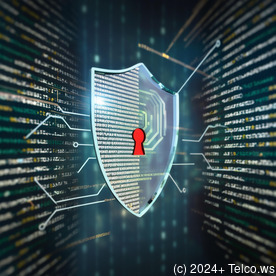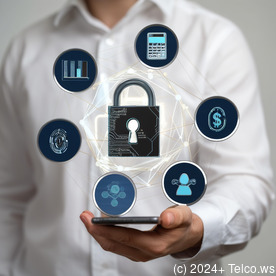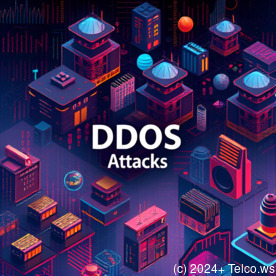
Understanding Blockchain Forensics: A Comprehensive Guide
Introduction
Blockchain technology, renowned for its immutability and transparency, has transformed various industries, from finance to supply chain management. However, this revolutionary technology also presents unique challenges when it comes to security and regulatory compliance. The need for robust blockchain forensics has emerged as a critical aspect of navigating the complexities of cryptocurrency transactions, helping identify fraudulent activities, ensure compliance with legal frameworks, and enhance the overall integrity of blockchain networks.




What is Blockchain Forensics?
Blockchain forensics refers to the investigative processes and techniques used to analyze blockchain transactions and related data to uncover illicit activities, trace funds, and identify real-world entities involved in those transactions. Unlike traditional financial systems, where transactions can be traced through banks or financial institutions, blockchain operates as a decentralized network where transactions are recorded in a public ledger.




Importance of Blockchain Forensics
- Fraud Detection and Prevention: Plays a pivotal role in identifying and preventing fraudulent activities such as money laundering and ransomware attacks.
- Regulatory Compliance: Aids businesses in complying with anti-money laundering (AML) and know-your-customer (KYC) regulations.
- Law Enforcement and Criminal Investigations: Helps law enforcement trace illicit transactions and collect evidence for criminal cases.
- Risk Assessment: Enables businesses and investors to assess risks associated with specific addresses or transactions.
- Market Integrity: Maintains overall integrity of the cryptocurrency market by deterring fraudulent activities.




Techniques Used in Blockchain Forensics
Various fundamental techniques contribute to understanding transaction flows and identifying potentially malicious activity:
- Transaction Graph Analysis: Mapping relationships between different wallet addresses to trace cryptocurrency origins and destinations.
- Address Clustering: Grouping together addresses likely controlled by the same entity to identify larger wallets.
- Entity Identification: Associating blockchain addresses with known entities, enhancing the investigative process.
- Time-Series Analysis: Examining the sequential nature of transactions over time to uncover abnormal patterns.
- Cross-Blockchain Analysis: Tracing transactions across different blockchains for a comprehensive understanding of asset flows.




Challenges in Blockchain Forensics
- Pseudonymity and Anonymity: Identifying the individuals behind wallet addresses can be complex due to user anonymity techniques.
- Data Volume and Complexity: The high transaction volume on various blockchains poses significant analytical challenges.
- Evolving Techniques: Malicious actors continuously adapt their methods, requiring forensic experts to stay current.
- Legal and Regulatory Frameworks: Forensic experts must navigate changing regulations to align their findings with legal standards.




Tools for Blockchain Forensics
To effectively perform blockchain forensics, various specialized tools are available:
- Chainalysis: Provides investigative tools and compliance solutions for law enforcement and businesses.
- Elliptic: Tailors solutions for financial organizations to assess risks associated with cryptocurrency transactions.
- Coinfirm: Specializes in anti-money laundering solutions focused on cryptocurrency.
- CipherTrace: Offers blockchain security solutions including transaction tracking and investigative tools.
- BlockSeer: A blockchain visualization tool for forensics and investigating suspicious activities.




Applications of Blockchain Forensics
- Financial Analysis and Investigation: Combats fraud and ensures compliance with regulatory requirements.
- Cryptocurrency Exchanges and Wallet Providers: Assess legitimacy of transactions to adhere to regulations.
- Law Enforcement Agencies: Gathers evidence, traces stolen assets, and builds cases for cybercrime.
- Regulators: Monitors market practices and enforces compliance within the cryptocurrency space.
- Investors and Research Organizations: Assesses risks associated with cryptocurrencies for informed investment decisions.




The Future of Blockchain Forensics
The future of blockchain forensics appears promising yet challenging. Key trends include:
- Integration with AI and Machine Learning: Enhances investigations through predictive analytics and automated pattern recognition.
- Enhanced Collaboration: Growing ties between regulators, law enforcement, and blockchain analytics firms for better compliance.
- Focus on Privacy: Need for solutions that adapt to increasingly sophisticated anonymity techniques.
- Regulatory and Compliance Evolution: Forensics will ensure adherence to evolving regulatory frameworks.
- Education and Training: A demand for specialized programs to train professionals in blockchain forensics.




Conclusion
In the ever-evolving landscape of blockchain and cryptocurrency, forensics plays a vital role in enhancing transparency, security, and trust. By leveraging suitable tools and techniques, organizations can ensure compliance, mitigate risks, and effectively address illicit activities, promoting a responsible blockchain ecosystem.




Enhance Your Skills in Blockchain Forensics
For organizations looking to strengthen their capabilities in blockchain forensics, we offer specialized training and consultation services designed to guide you through the complexities of cryptocurrency investigations.
Interested in buying? The price for our Blockchain Forensics Masterclass is $850. To proceed, visit our Checkout Gateway and follow the payment instructions to secure your spot. After payment, please reach out to us via email or phone with your receipt and details to finalize your enrollment in this essential training program. Thank you for your interest!
